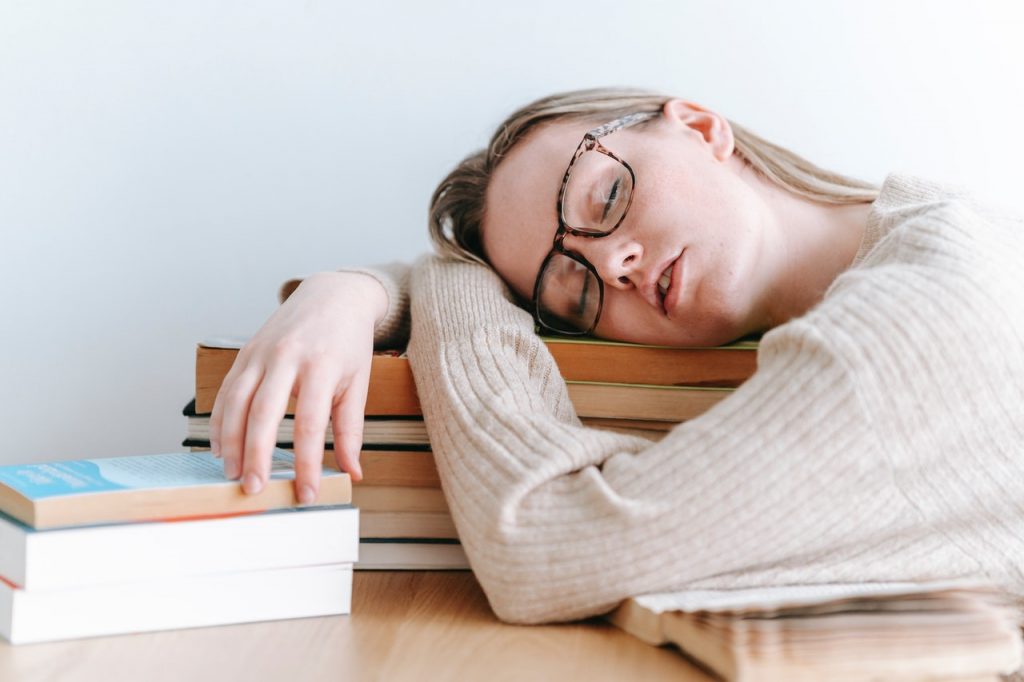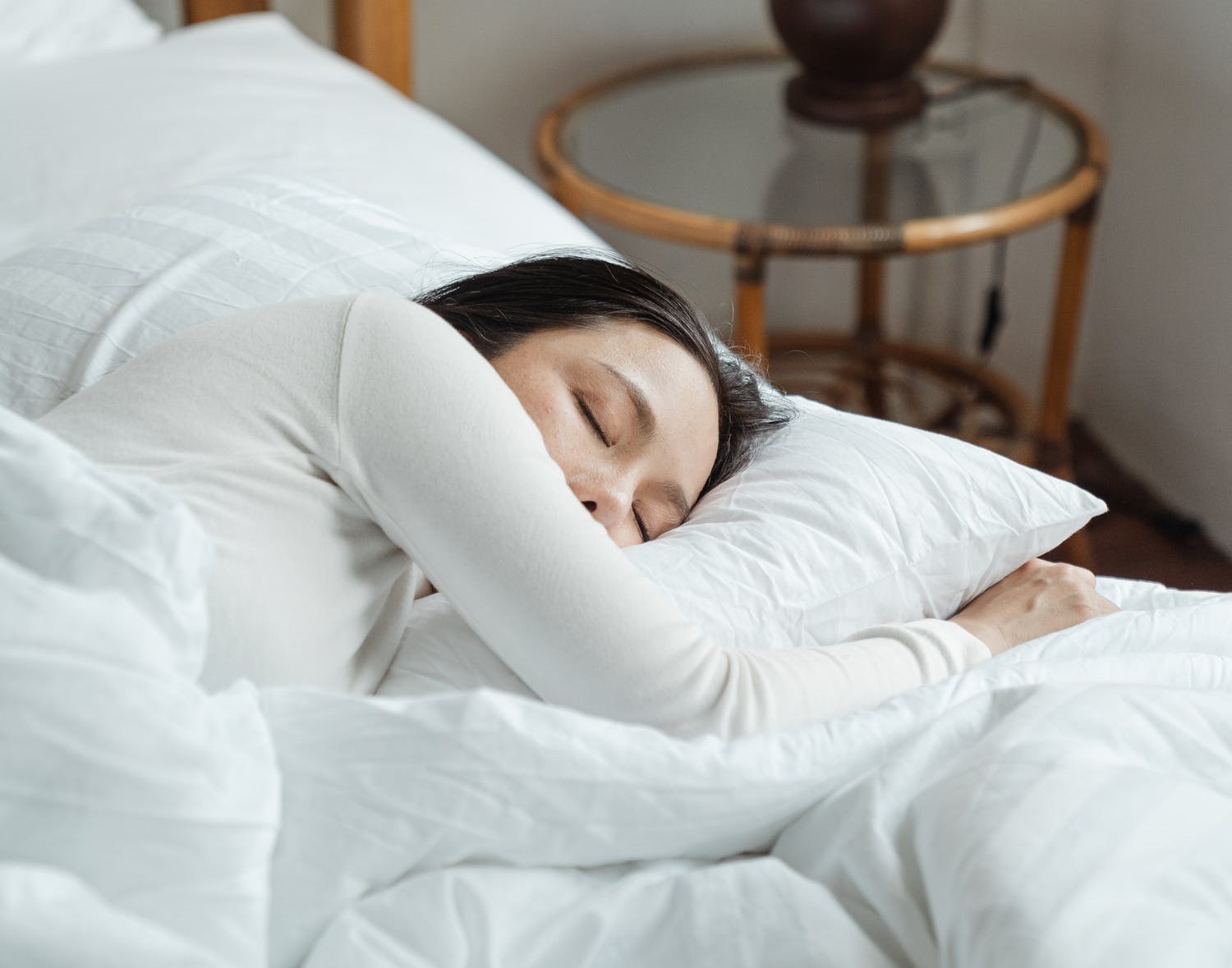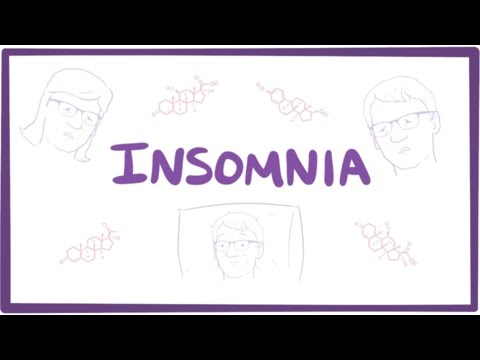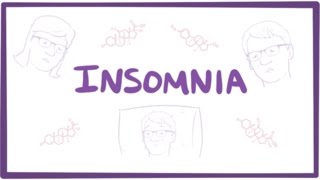Insomnia and Other Sleep Problems
5 Signs You’re Having Sleep Problems
If you’re having trouble falling asleep, staying asleep, waking up frequently, waking up tired, or being so tired during the day that you’re not productive, you’re probably experiencing sleep problems. Here are 5 signs that you might be suffering from sleep problems:
1. Feeling tired all the time.
Humans react negatively to a lack of sleep, so if you feel tired constantly, your body is asking you to rest, which it conveys via fatigue.
2. Sleeping during the day
There’s nothing wrong with taking short naps during the day, but lengthy and/or frequent periods of sleep during the day are not considered healthy.
3. Snoring / sleep apnea
Many people snore, but it can point to potentially dangerous health issues. Look out for these signs: daytime drowsiness; snorting, choking, or gasping; loud snoring; or recent weight gains or being obese.
4. Difficulty sleeping / Insomnia
This might seem obvious, but difficulty sleeping/insomnia is one of these signs, which have myriad causes. Some might be easy to diagnose, such as jet lag, excessive intake of caffeine, stress, medication side-effects, etc. However, deeper underlying conditions that can lead to insomnia might include sleep or mood disorders like depression and anxiety.
5. Inability to focus
Being sleep deprived makes it difficult to focus. If you have trouble focusing on daily tasks, it can cause significant problems for your professional and personal life.

10 Subtypes of Sleep Disorders
Insomnia disorder, hypersomnolence disorder, narcolepsy, breathing-related sleep disorders, circadian rhythm sleep disorders, non-REM (NREM) sleep arousal disorders, nightmare disorder, REM sleep behavior disorder, restless legs syndrome, and substance- or medication-induced sleep disorder.
Insomnia
Insomnia is a sleep disorder that affects nearly 40 million people in the United States and is often debilitating, leading to missed work, school, social activities, exercise, etc. Missing such daily activities can compound the problem. The disorder is marked by an inability to fall or stay asleep, even if one goes to bed early and in a sedated state of mind. The condition may make it difficult to function normally, which can cause frustration, irritability, or a lack of concentration.
Insomnia Symptoms
Insomnia symptoms can differ, but the most common signs include difficulty falling asleep, waking up in the middle of the night, nightmares, feeling groggy in the morning, difficulties staying awake at work or school, concentration difficulties, and irritability. These symptoms might become severe enough to cause daytime drowsiness and reduced energy.
Insomnia Treatment
The most commonly recommended treatment for insomnia is cognitive behavioral therapy (CBT), which combines teaching behavioral management strategies — e.g. sleep restriction, stimulus control, and relaxation — with cognitive restructuring in an attempt to change one’s beliefs about sleep and wellness. CBT can be effective for both primary insomnia (no diagnosed sleep disorder) and secondary insomnia (when symptoms of another disorder exacerbate insomnia).
Insomnia Causes
Insomnia can be caused by a multitude of factors, including sleep disorders that disrupt the body’s natural sleep cycle. Such disorders include sleep apnea and restless leg syndrome (RLS), which should be diagnosed by a physician. Stress and anxiety can also affect one’s ability to fall and stay asleep.
Insomnia Test
If you haven’t consulted with your healthcare provider, some basic online tests might reveal if you have signs of insomnia. You might benefit from keeping a sleep diary to track your sleep patterns, while doctors can administer sleep disorder tests, such as questionnaires, mental health exams, sleep studies, polysomnograms, and sleep-wake pattern assessments (actigraphy).
Other Types of Sleeping Disorders
Hypersomnolence Disorder
Hypersomnolence — hyper (above, beyond, super) + somnolence (sleepiness, drowsiness, ready to fall asleep) — disorder is an excessive need for sleep, even if one has slept seven or more hours and has one or more of the following symptoms: Combativeness/confusion or difficulties when waking up; sleeping or napping throughout the day; not feeling rested/refreshed after sleeping more than nine hours; and napping to combat sleepiness but unable to wake up refreshed.
Narcolepsy
While rare, narcolepsy is a serious issue that significantly disrupts lives, with cataplexy, hallucinations, excessive daytime sleepiness, sleep paralysis, sleep disruption (CHESS) being its five main symptoms. Those suffering from narcolepsy find it difficult to stay awake, no matter what they’re doing.
Breathing-related Sleep Disorders – Snoring
Breathing-related sleep disorders commonly range from chronic or habitual snoring, but can also include upper airway resistance syndrome (UARS), frank obstructive sleep apnea (OSA), and obesity hypoventilation syndrome (OHS). Oftentimes, the solutions to such issues are more physical than mental, like lifestyle changes, weight loss, quitting alcohol or smoking. For more severe cases, CPAP machines can keep upper airway passages open to prevent apnea and snoring.
Circadian Rhythm Sleep Disorders
Humans naturally follow daytime/nighttime sleep cycles, but some suffer from circadian rhythm sleep disorders: inability to fall back asleep after waking up earlier than desired, difficulties falling asleep, or waking up during their sleep cycle. There are several treatments available, including light therapy, medication, and behavioral therapy.
Non-REM (NREM) Sleep Arousal Disorders
Some people wake up when they are not in the rapid-eye movement (REM) stage of sleep, known as non-rapid eye movement (NREM) sleep. These disorders can include sleep terrors, sleepwalking, and confusional arousals.
Nightmare Disorders
Nightmare disorder (or dream anxiety disorder) is characterized by frequent bad dreams (aka nightmares), which often find the dreamer in life-threatening situations. Such dreams usually occur during REM sleep stages.
REM Sleep Behavior Disorders
REM sleep behavior disorder is marked by persons physically acting out vivid, unpleasant dreams either vocally or with sudden leg or arm movements. This syndrome is sometimes referred to as dream-enacting behavior.
Restless Leg Syndrome (RLD)
Known colloquially as Jimmy Legs, those suffering from restless legs syndrome (RLS) feel an uncontrollable urge to move their legs. Since this often occurs during the evening or nighttime when one is prone, it can negatively affect sleep. While moving might ease the unpleasantness, permanent cures may require medication and/or therapy.
Sleeping Problems Solutions
In addition to the aforementioned cognitive-based therapy (CBT), we recommend the following lifestyle adjustments if you’re suffering from sleeping problems.
Limit bedtime activities
You might think watching TV in bed is a good way to fall asleep, but doing so increases your exposure to blue light and thus risks for obesity, diabetes, and other health problems. In reality, the bedroom shouldn’t be a place for work, studying, phone calls, or even listening to the radio. These activities might increase your level of alertness and cause difficulties falling asleep.
Avoid eating or drinking at bedtime
Eating less than three hours before going to bed can activate your digestive system and make falling asleep difficult, and for those suffering heartburn or gastroesophageal reflux (GERD), late-night meals might worsen your symptoms. In addition, don’t drink large quantities of fluids before bedtime so you can avoid middle-of-the-night bathroom visits.
Reduce or eliminate intake of alcohol, caffeine, and nicotine
Alcohol is a sedative, but using booze as a sleep aid is never recommended, and it might lead to restlessness after several hours. Moreover, alcohol also has diuretic effects, which means you’ll be up through the night to use the bathroom. Caffeine affects people differently depending on their genetic makeup, but for some it can make falling asleep difficult and lead to waking up throughout the night. Nicotine is an addictive stimulant in all of its forms, with the drug’s ill effects reaching far beyond problems sleeping. Also pay attention to warnings on medications since many are stimulants, like decongestants and asthma treatments, so consult with your healthcare provider if such products interfere with your sleep.
Customize your sleeping environment
Some lucky people can easily fall and stay asleep in noisy, uncomfortable settings, while others are like The Princess and the Pea, but wherever you fall in this spectrum, having an optimal sleep setting is the first step to a full-night’s rest. Humans tend to sleep well in lower temperatures with low (or zero) lighting and lack of noise (although noise generators are helpful for certain types).
Reduce stress
Meditation, deep breathing, relaxation therapies, and other methods of stress reduction can ease your mind and body at bedtime. Excessive stress and anxiety can be signs that you could benefit from counseling.
Stick to a schedule
“Catching up” on sleep on weekends might be tempting, but this can lead to an adverse effect if you find yourself unable to fall asleep on Sunday night with an early Monday start awaiting you. We recommend sticking to a consistent wake-sleep schedule seven days a week, which trains your body and mind to remain consistent.
Cut down on naps
Short naps are often beneficial and even recommended, but naps exceeding 30 minutes might hurt your ability to get a solid night’s rest.
Exercise
Regular exercise is beneficial and has been shown to improve sleep quality and duration, but it shouldn’t be done within three hours of one’s bedtime.
Thank You
Thanks for visiting our page on Insomnia and other Sleep Problems, please see our other pages and blog posts for more useful mental health information, and don’t hesitate to reach out for help.


IT COULD BE TIME TO REACH OUT FOR HELP.
Fill out the form below, and we will contact you as soon as possible!
General Inquiries only, visit here for appointment scheduling


